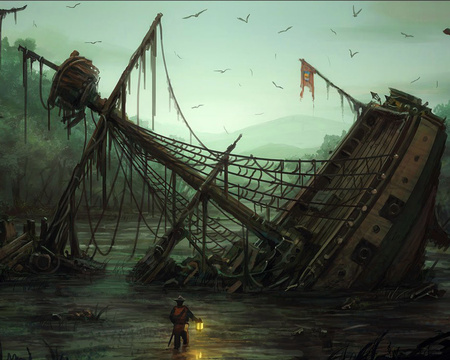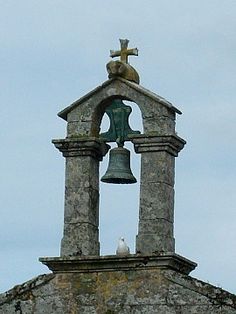The world – or our little bit of it – has recently become very strange indeed.
On the day when we have one genuinely excellent piece of news – the first vaccinations against Covid – we find ourselves on the brink of disaster – or worse. And which of those it will be is in the hands of a man with the attention span of a gnat and no discernible talents whatsoever. I refer, of course, to our Prime Minister and his theatrical 11th hour and 59th minute dash to Brussels.
Dumb and Dumber

When I use the terms “disaster” and “disasterer”, I’m referring to the choice between Johnson’s putative feeble and thin trade deal with the EU and the bigger disaster of “no deal” (which Johnson dresses up as “Australian-style”). Choose your metaphor: Disaster or Disasterer, a Rock and a Hard Place, (for the classically-minded) Scylla or Charybdis; the Devil or the Deep Blue Sea, Dumb or Dumber. You choose: all of them worse than where we now are.
That Elusive “Sovereignty”
Apologists for leaving the EU have been banging on for years about something called “national sovereignty”. There is quite a good definition statement of this abstract concept to be found in this US website. In the abstract, this sounds like a good idea – as long as you don’t think too deeply about it. As far as we are allowed to know, at the time of writing, the issues still divide UK and EU negotiating positions seem to boil down to two things.
The first is our future theoretical desire to deviate from EU norms and standards, in state aid for UK companies, workers’ rights and consumer protection mainly. And the second is how any divergence is policed – and by whom. (Rumour has it that there’s a deal already hammered out for fish. Topical comparison: more people work at the Addenbrookes Medical Campus in Cambridge than in the whole UK fishing industry, but no matter, for now.)
Lockdown in My Head
To be honest, I have some instinctive liking for having these theoretical freedoms. Consider, for a moment, the restrictions of our day-to-day freedoms brought about by the Covid lockdown restrictions. There’s a kind of “lockdown in my head” feeling of frustration and unease flowing from those things I’m currently not allowed to do. (We’re in tier 2, by the way.) It’s a feeling that won’t quite go away: akin, I guess, to some form of mini-imprisonment.
But, in practice, life is not that much different from “normal” times. The amount of socialising we do these days is pretty minimal, Zoom meetings have replaced face-to-face ones and we do more shopping online. Furthermore, medical issues over the period from 3 years to 1 year ago meant that my activities were curtailed compared to my life before then. Our holiday plans have been much changed, but we still managed a weekend break in February (before Covid really struck the UK) and a week in a cottage in Wales in September. We’ve been relatively fortunate so far. But that “lockdown in my head” feeling is still there, in the background.
So I do “get” the instinctive desire to be “free”.
In the Real World

But now we must get real. As John Donne said in his 17th century Meditation XVII, “No man is an island”. The bald fact is that we live in a very interconnected world. Back in the 19th century, when Lord Palmerson was Foreign Secretary, Britain could flex its muscles and send in a gunboat to teach Johnny Foreigner a lesson. That was because Britain was indisputably the strongest nation on earth – and we threw our weight around. We had 10% of the world’s GDP; that’s now less than 2.5%.
Nowadays, we need collaboration with other countries, and our nearest neighbours in particular. 40% of our food is imported, mostly from the EU – frictionlessly until 31st December. Combatting transnational crime and terrorism needs good cooperation and easy transfer of data and intelligence: all under threat after the end of this year. The EU is the only entity so far on a global stage to challenge the overmighty power of companies like Google and Amazon. Britain alone will be powerless against abuse of dominant market monopolies.
Our supply chains (for example in motor manufacturing), our love lives and relationships, our holidays and trading by companies large and small have been built around frictionless movement of goods and people. From January 1st? For people, all that stops. For goods, we still don’t know.
By acting as the rogue state of Europe – for example, by breaking international law – we have poisoned the well of trust needed to smooth the flow of day-to-day interactions across borders. (I believe some sort of deal has been brokered so that we can withdraw the offending paragraphs from legislation going through Parliament – but it’s all a bit unclear as I write.)
So the prized concept of “sovereignty” is, in reality, illusory. This means Johnson and co. are chasing an illusion with no upsides in practical terms.
Before the Normans
But there is a deeper psychological illusion lurking behind all this insanity. Leave extremists, like Johnson and Rees-Mogg, seem to have a different understanding of the concept of freedom itself. Look at the language they use. Behind it lies a mythological past dating back to the days before the Norman conquest in 1066. We learnt at school about the Battle of Hastings, the Domesday Book – how dare they write it all down to ease taxation? – and Norman castles all over the land, to oppress the local populations behind the safety of battlements and drawbridges.
This stuff cuts deep into our national psyche. The myth of a golden age of “free” Angles and Saxons lies beneath this yearning for the illusion of “sovereignty”. And I feel it is high time we let it go and face reality in the 21st century.
Labour Must Abstain
If Johnson does come back from Brussels with a deal, beware the lies which will be spun: world-class, heroically won or whatever. It will bring disruption, extra bureaucracy, shortages of food and medicine and lost jobs – to name a few. And don’t let the government hide behind the tribulations of the pandemic: these problems will be Tory Government-made and were avoidable.
So Keir Starmer must lead his party to abstain: on the positive, moral principle of “a plague on both your houses”. Let the government take the blame they deserve. At the end of the same John Donne poem mentioned above, we find the equally famous words: “Never send to know for whom the bell tolls; it tolls for thee”. Johnson take heed.

When the month ends, it will be “good riddance” to 2020: it’s been an awful year. Ring in the New Year by all means: the vaccines, at least, bring hope. But our status in the world will have been diminished mightily. A mournful chime for us all.